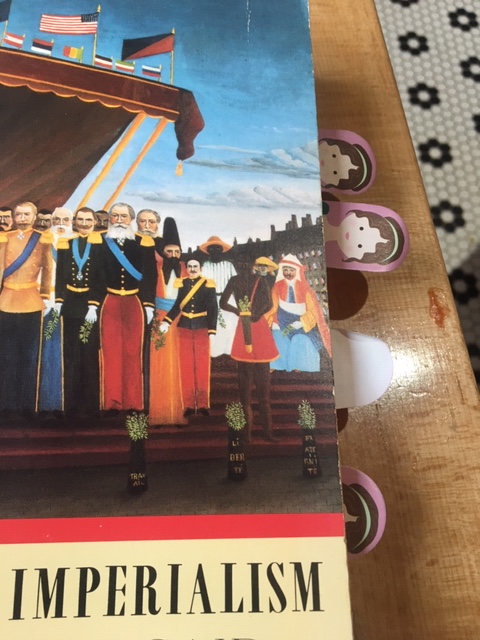This fall I’m giving three talks, and I’m curious and interested in each one for different reasons.
The PublicsLab at The Graduate Center invited me to share my thinking about what it means to participate in national discussions about equity and diversity. I’ve been thinking about what’s missing in the conversations sparked whenever a white professor faces criticism for using racist language for pedagogical reasons. I’ve been thinking about this so much that I had to stop writing on the book (THE BOOK) one morning and open a new screen. I know I’m on to something because I banged out about 1,000 pretty good words on it in about an hour, and then went right back to THE BOOK. My talk (September 27th) is titled: “Whiteness as an Institution: Publics and Pedagogies” and is based on those 1,000 words. I will also lead a workshop with the Mellon Humanities Public Fellows: “Public Writing and the Early Career Scholar.”
I’ll give a lecture (open to the public) from THE BOOK as part of the University of Georgia’s Colloquium in Eighteenth and Nineteenth-Century Literature. The sugar will be there (always), but I’m also ready to make more explicit connections using eighteenth-century texts and their connection to material culture. The first part of the talk’s title “for dead weight” comes from a pamphlet I read about tariffs, slavery, and East India vs. West India sugar.
The Aphra Behn/Frances Burney society is meeting at Auburn University for its biennial conference, and I’ve been asked to deliver a keynote address. The conference theme is Public Good(s), and I’m curious to see how my thoughts about this coalesce for this particular group of scholars. I’ve been working at the talk (this is different than working on the talk) since Emily Friedman’s intriguing invitation, and I know how I want the conferees to feel during my address (as already part of the various notions of publics) and what I would like for them to see (I mean this quite literally). It’s a huge responsibility to take up such a theme, and I’ve been thinking of Saree Makdisi’s keynote at the “Resistance in the Spirit of Romanticism” conference I attended last year. He pushed us to examine the role we think our work plays in our politics and where that politics can and cannot be located. So, while my talk will be based on the work I’m doing for THE BOOK, it’s also aiming to think more broadly about the politics of my work and what the attention paid to work like mine suggests about the field and cultural landscapes.
I was away for a month, and it was good. I’m back in the classroom in a few weeks after a spring term sabbatical. Before I left I took every single postcard and note off my door and left a sticky note with “see you in September” on it (it was a whole mood). My friend designed a lovely poster listing for my office hours I’ll keep on my door as much for me as for my students. Devoney Looser and I spent wonderful time together at the International Conference on Romanticism and she gave me a bit of Shelley’s The Masque of Anarchy I’ll also put that up as a reminder of what matters and how:
“Rise,
like Lions after slumber
In unvanquishable number!
Shake your chains to earth like dew
Which in sleep had fallen on you:
Ye are many—they are few!”

Can’t wait to hear more about “Whiteness as an Institution: Publics and Pedagogies”, sounds intriguing!
Best wishes for a great fall semester.
Just stumbling through bookmarked websites I’ve been meaning to visit and came across this post! I attended said “Whiteness as an Institution: Publics and Pedagogies” talk and wanted to just say I’ve been thinking about it ever since. So much to unpack and mull over as a white academic and scholar. One part that keeps coming up for me: you talked about how white people/students often think, upon learning about structural racism and while reading historical texts that illuminate the history of racism and colonialism, that they’re being “called upon to fix” these issues, but that this problem isn’t a “bug” you can fix – it’s a feature. Devastating and yet so familiar.
Anyway thank you for giving that talk.
I also wanted to mention that I’m going through the same stack of Jane Austen post-it notes at this very moment (the ones in the Said book pictured with this post). So LOL!
Thanks for this, Alex! And thank you for being at the talk and being so present.